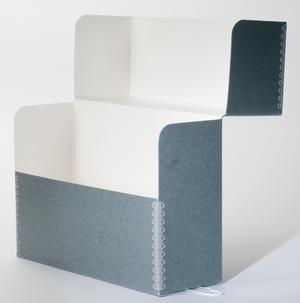- Contact Us
- Emergency Information
- Facility Rental
- Jobs
- Site Map
- Site Policies
- Web Accessibility
- Web Privacy
- © Harry Ransom Center 2025

SIGNATURES
Identified individuals are represented by a biographical sketch, a list of connections to other signatures, and, in most cases, an artifact from the Ransom Centers collections. Help us identify more signatures by submitting your suggested identification.
X
X
THE DOOR
 Location on door: front, panel 3
Location on door: front, panel 3
ERNEST AUGUSTUS BOYD
Critic, writer, and translator Ernest Augustus Boyd (1887-1946) was born in Dublin, Ireland. While serving in Baltimore with the British consular service, Boyd formed a friendship with critic H. L. Mencken, editor of the American Mercury. In 1920, after posts in several other countries, Boyd left the consular service and moved to New York to devote himself to his critical career. Known for his "caustic wit," he wrote articles and reviews for the American Mercury, the New York Evening Post, the Saturday Review of Literature, and in the 1930s served as an editor at the American Spectator alongside James Branch Cabell, Eugene O'Neill, and Theodore Dreiser. Boyd published over twenty books, including volumes on the Irish Literary Renaissance, biographies of H. L. Mencken (1925) and Guy de Maupassant (1926), and collections of his essays and criticism. He caused a stir among Villagers, and literary circles in general, with his article "Aesthete: Model 1924." Published in the American Mercury, the piece satirized those associated with little magazines.

A Letter from Ezra Pound to Ernest Boyd, 16 May, 1917
This early letter from poet Ezra Pound demonstrates that even during his consular career Boyd was active in literary matters. Pound refers to a brief review of James Joyce's A Portrait of the Artist as a Young Man (1916) that Boyd had published in the journal New Ireland. Boyd chose not to discuss Joyce in Ireland's Literary Renaissance (1916), the first book-length study of the Revival. When he published a revised edition in 1923, however, Boyd added an essay in which he argued that Joyce should be read within the context of the Irish literary tradition.

